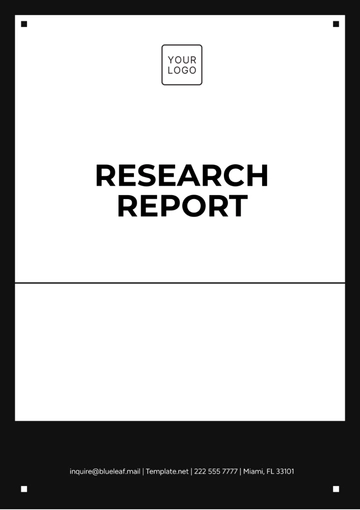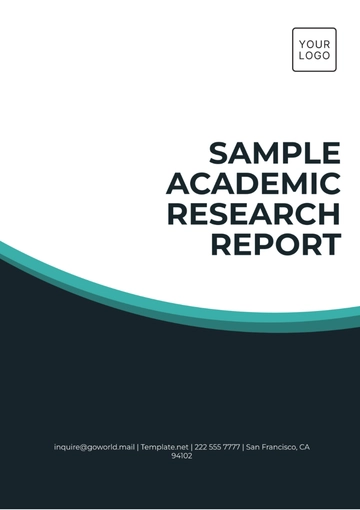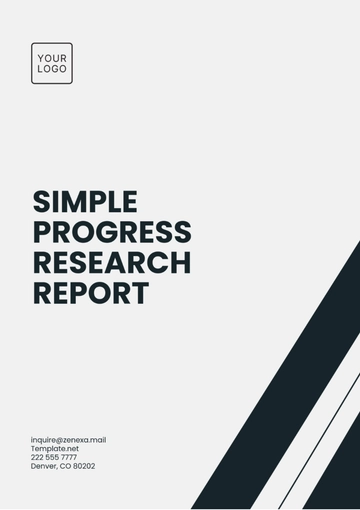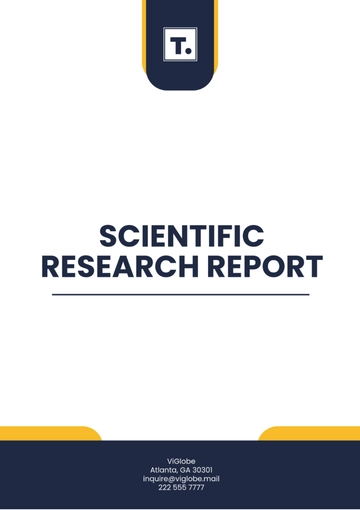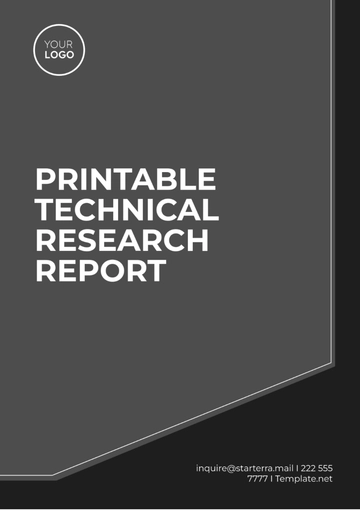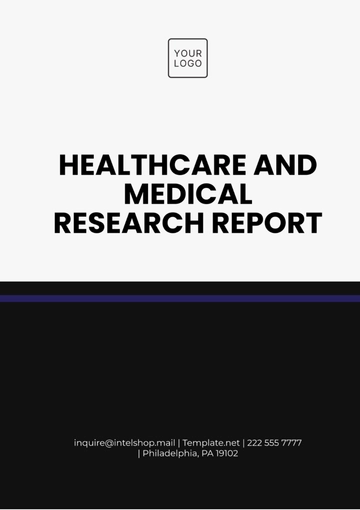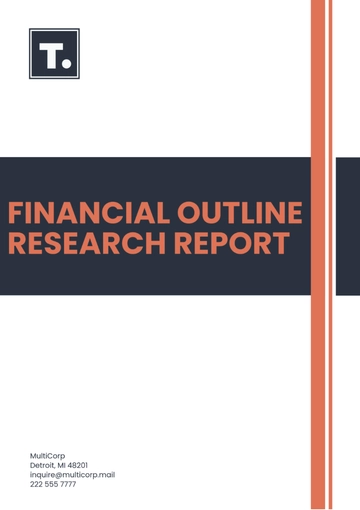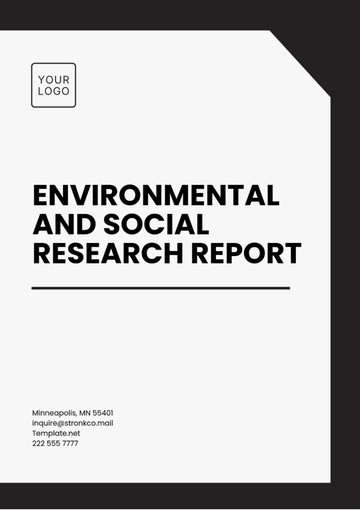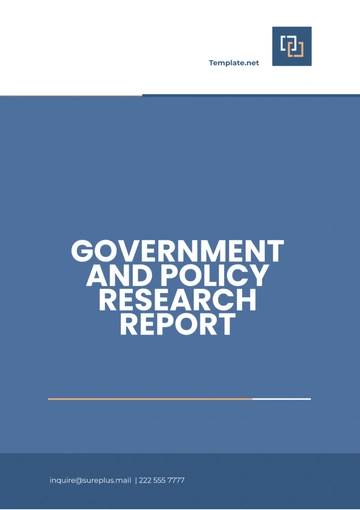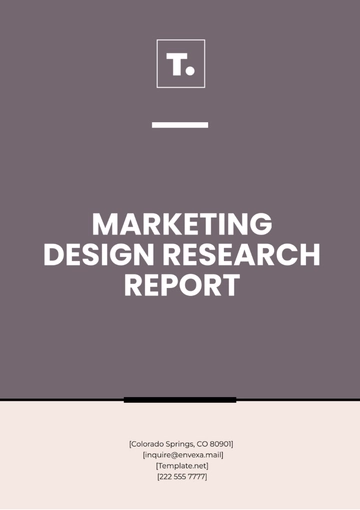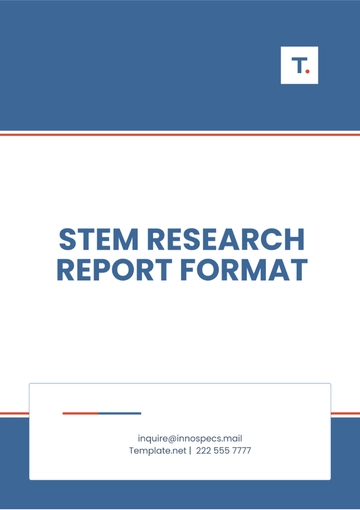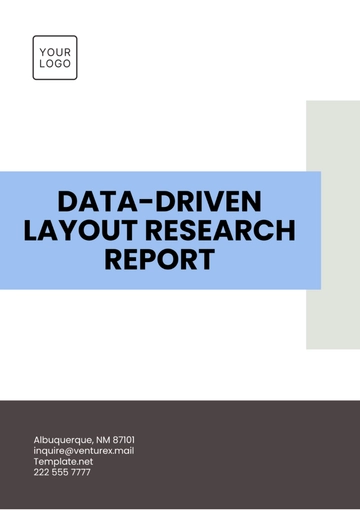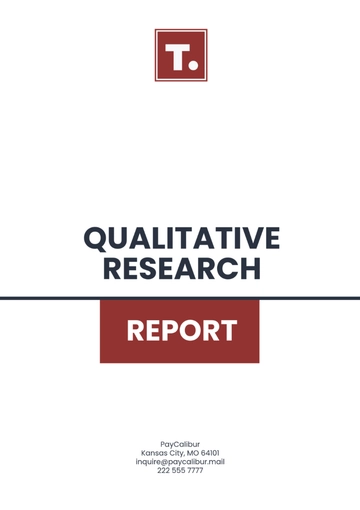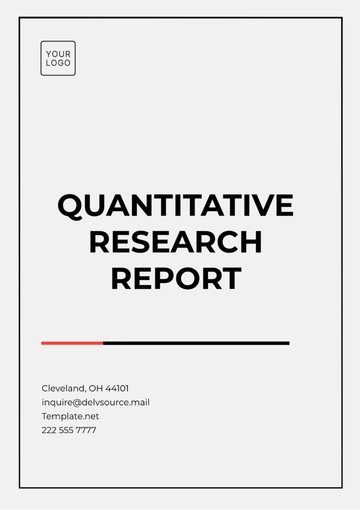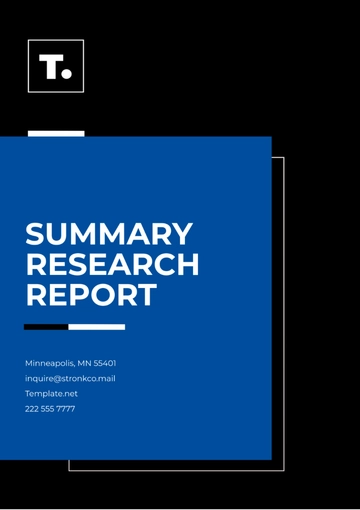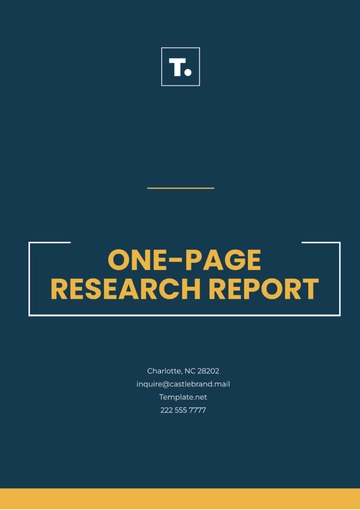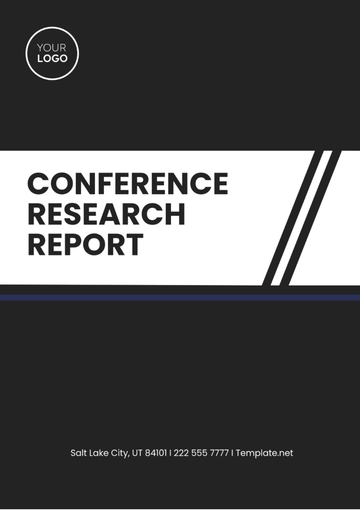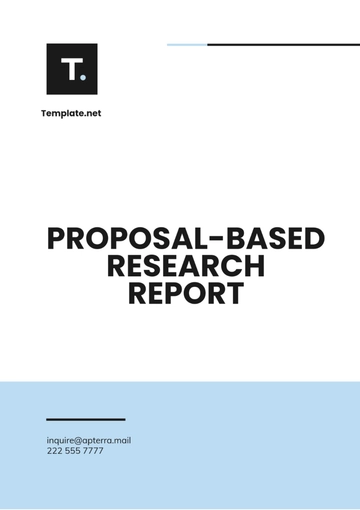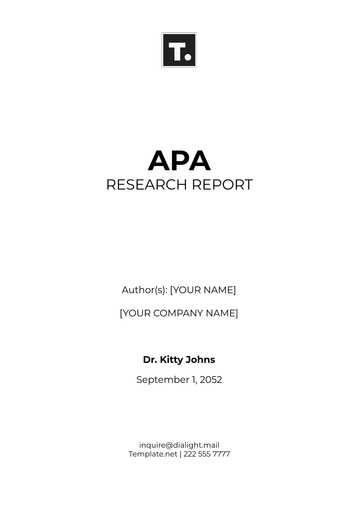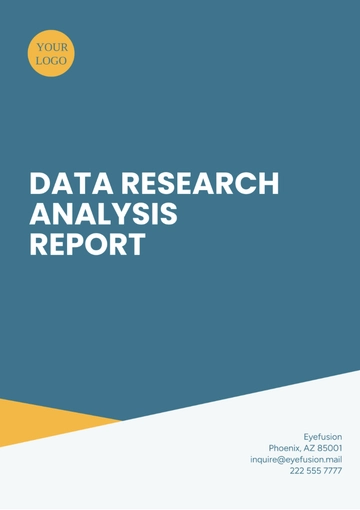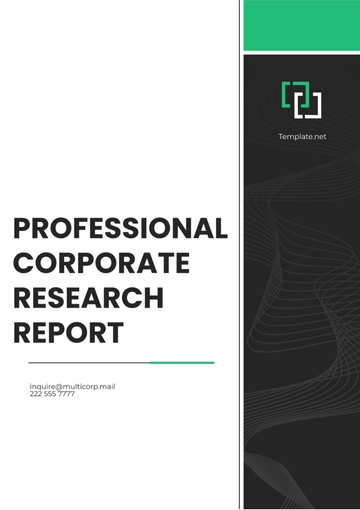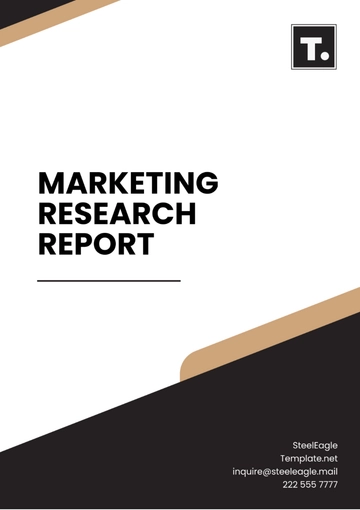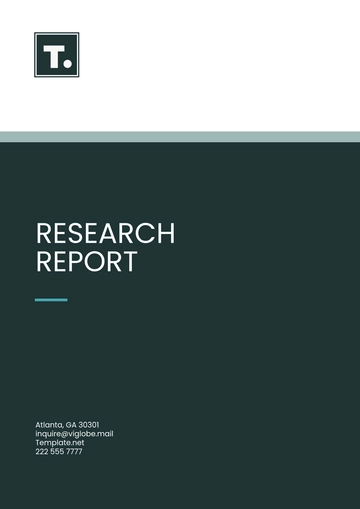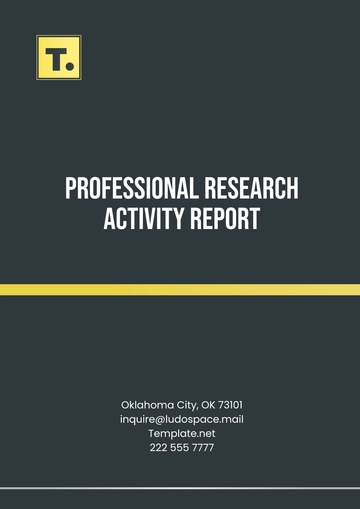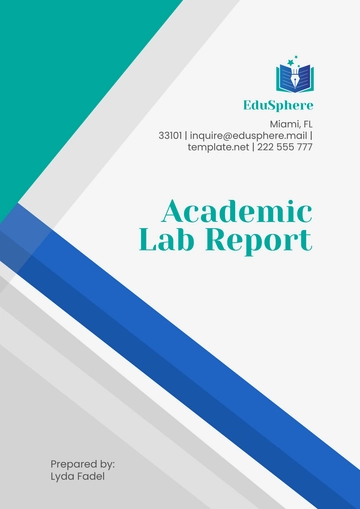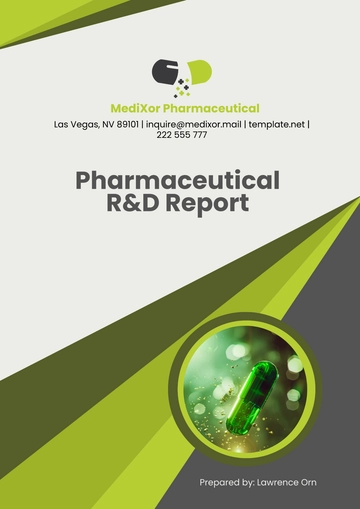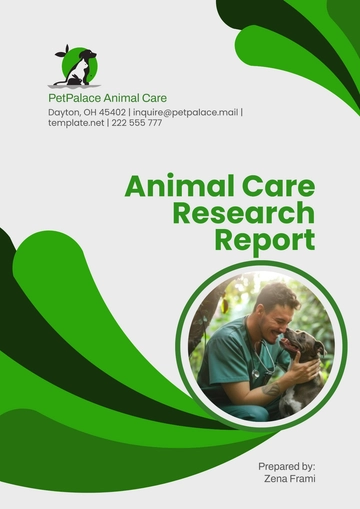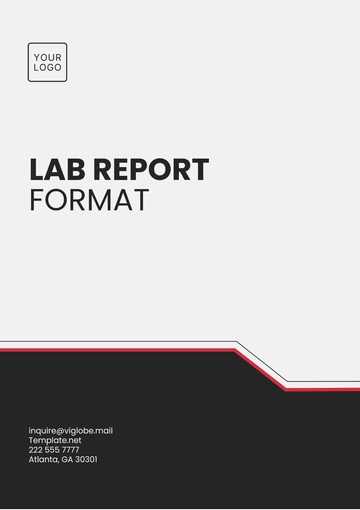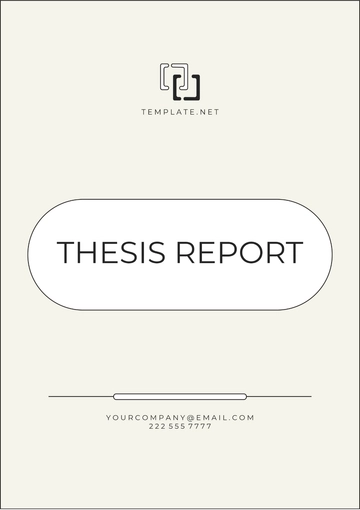Free Monthly Research Report
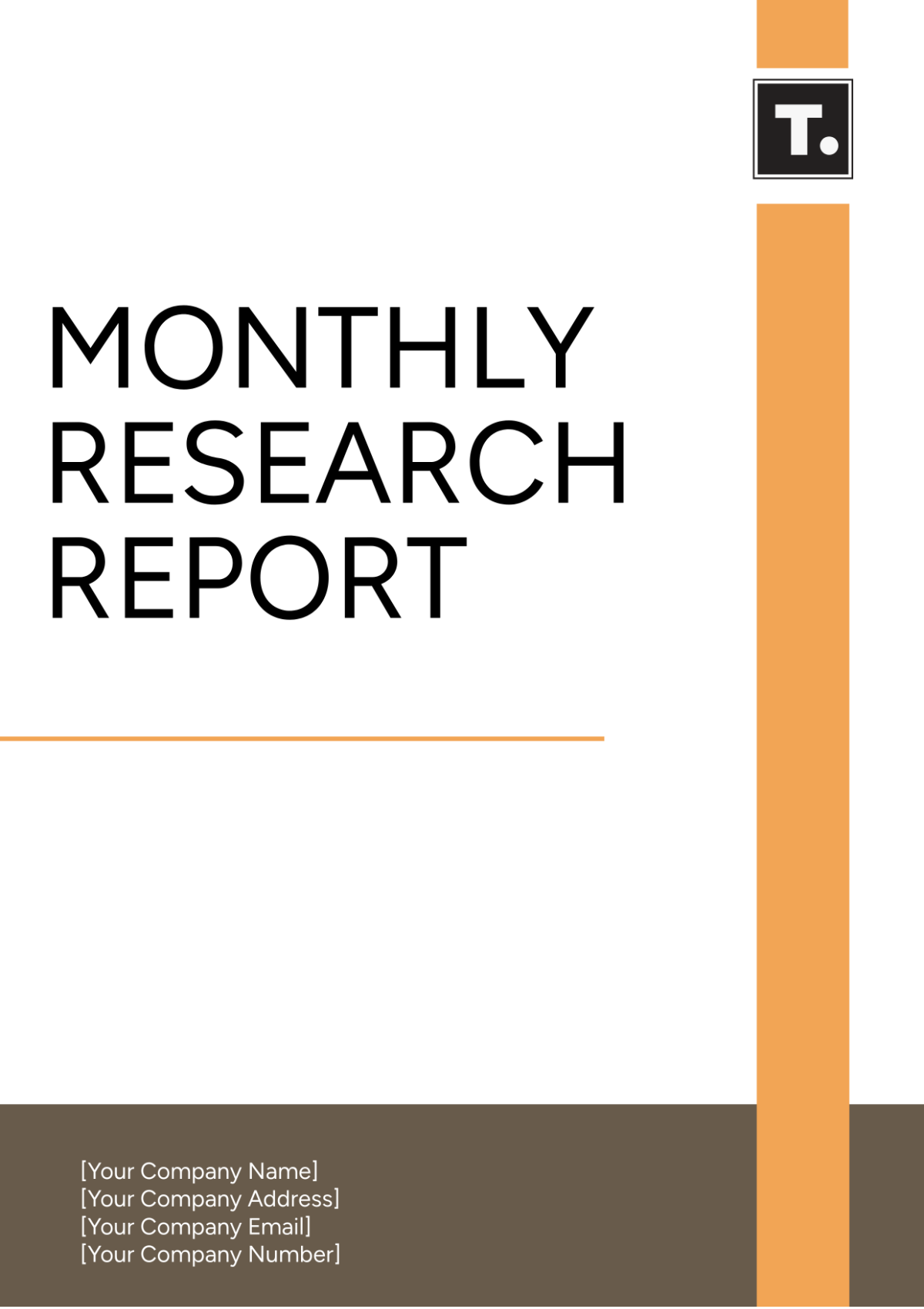
Prepared By | Institution | |
|---|---|---|
[YOUR NAME] | [YOUR COMPANY NAME] | [YOUR EMAIL] |
I. Introduction
The elderly population is particularly vulnerable to respiratory viruses such as influenza and respiratory syncytial virus (RSV). The development of a novel mRNA vaccine aims to enhance protection in this high-risk group. This report provides an overview of the research progress, key findings, challenges, and future directions for the month of [Month].
II. Research Objectives
Assess the immunogenicity of the novel mRNA vaccine in individuals aged 65 and older.
Monitor the safety profile and adverse events associated with the vaccine.
Compare the vaccine's efficacy against existing vaccines for respiratory viruses.
III. Progress Update
Milestone | Status | Details | Next Steps |
|---|---|---|---|
Participant Recruitment | Completed | 5,000 participants enrolled | Begin initial health assessments |
Vaccine Administration | In Progress | 3,000 participants vaccinated | Complete vaccination of remaining participants |
Data Collection | Ongoing | Blood samples and health data collected from 2,500 participants | Continue data collection |
Adverse Event Monitoring | Active | Minor side effects reported (e.g., mild fever, injection site pain) | Monitor and manage reported events |
IV. Key Findings
A. Immunogenicity
Preliminary data indicate a strong immune response in the vaccinated group, with antibody titers significantly higher than in the placebo group.
Early results suggest that the novel mRNA vaccine induces a robust and sustained immune response.
B. Safety Profile
Most reported adverse events are mild and transient, including mild fever, fatigue, and injection site pain.
No serious adverse events have been attributed to the vaccine to date.
C. Comparative Efficacy
Initial comparisons show that the novel mRNA vaccine provides superior protection against respiratory viruses compared to the control group receiving existing vaccines.
V. Challenges and Issues
Participant Recruitment: While recruitment was successful, ensuring consistent follow-up with all participants has been challenging due to mobility issues and health complications common in the elderly population.
Logistical Issues: Coordinating multiple clinical centers and maintaining consistent data collection standards have posed logistical challenges.
VI. Lessons Learned
Improved Follow-Up Strategies: Implementing more flexible and participant-friendly follow-up methods, such as telehealth consultations, can improve data collection and participant compliance.
Enhanced Adverse Event Monitoring: Developing a more streamlined and user-friendly adverse event reporting system can ensure timely and accurate data.
Coordination and Communication: Strengthening coordination among clinical centers through regular meetings and standardized protocols can mitigate logistical issues.
VII. Action Plan
Action Item | Responsible Team | Deadline |
|---|---|---|
Complete vaccination of all participants | Clinical Teams | [Date] |
Conduct preliminary data analysis | Data Analysis Team | [Date] |
Implement enhanced follow-up strategies | Research Coordination Team | [Date] |
Develop improved adverse event reporting system | IT and Compliance Team | [Date] |
- 100% Customizable, free editor
- Access 1 Million+ Templates, photo’s & graphics
- Download or share as a template
- Click and replace photos, graphics, text, backgrounds
- Resize, crop, AI write & more
- Access advanced editor
Document your research findings with the Monthly Research Report Template by Template.net. This customizable and downloadable template provides a structured format to present your research data clearly and concisely. Printable and editable in our AI Editor Tool, it ensures you can tailor the report to your specific research requirements. Share your insights and progress with this detailed, professional-grade report.
You may also like
- Sales Report
- Daily Report
- Project Report
- Business Report
- Weekly Report
- Incident Report
- Annual Report
- Report Layout
- Report Design
- Progress Report
- Marketing Report
- Company Report
- Monthly Report
- Audit Report
- Status Report
- School Report
- Reports Hr
- Management Report
- Project Status Report
- Handover Report
- Health And Safety Report
- Restaurant Report
- Construction Report
- Research Report
- Evaluation Report
- Investigation Report
- Employee Report
- Advertising Report
- Weekly Status Report
- Project Management Report
- Finance Report
- Service Report
- Technical Report
- Meeting Report
- Quarterly Report
- Inspection Report
- Medical Report
- Test Report
- Summary Report
- Inventory Report
- Valuation Report
- Operations Report
- Payroll Report
- Training Report
- Job Report
- Case Report
- Performance Report
- Board Report
- Internal Audit Report
- Student Report
- Monthly Management Report
- Small Business Report
- Accident Report
- Call Center Report
- Activity Report
- IT and Software Report
- Internship Report
- Visit Report
- Product Report
- Book Report
- Property Report
- Recruitment Report
- University Report
- Event Report
- SEO Report
- Conference Report
- Narrative Report
- Nursing Home Report
- Preschool Report
- Call Report
- Customer Report
- Employee Incident Report
- Accomplishment Report
- Social Media Report
- Work From Home Report
- Security Report
- Damage Report
- Quality Report
- Internal Report
- Nurse Report
- Real Estate Report
- Hotel Report
- Equipment Report
- Credit Report
- Field Report
- Non Profit Report
- Maintenance Report
- News Report
- Survey Report
- Executive Report
- Law Firm Report
- Advertising Agency Report
- Interior Design Report
- Travel Agency Report
- Stock Report
- Salon Report
- Bug Report
- Workplace Report
- Action Report
- Investor Report
- Cleaning Services Report
- Consulting Report
- Freelancer Report
- Site Visit Report
- Trip Report
- Classroom Observation Report
- Vehicle Report
- Final Report
- Software Report
